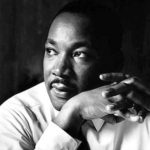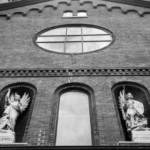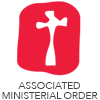Last Fall 2014 I began an experiment in using more liturgical prayers during the adult Sunday morning worship services. In the Spring of 2015 we began an experiment of celebrating the Lord’s Table every Sunday. These are gathered prayers, writing out on the projector screens, used most often with an antiphonal back and forth spoken out loud format, such as the “kyrie eleison” (Leader) “Lord have mercy” (congregants) “Christ have mercy” (Leader) “Lord have mercy.”
Lakeland has focused on several key prayers:
1) The Lord’s Prayer (Our Father in heaven, hallowed be your name…”
2) Confession, which has taken on a few simple forms;
3) Absolution follows Confession;
4) Prayers of the People, which is intercession on behalf of others and ourselves, prayers like “O Lord, comfort those who mourn and are sad and grieve…”
5) Call to the Table, which includes the “words of institution:” “On the night Jesus was betrayed, he took the loaf of bread…” and includes these simple words:
(Leader)
Therefore we proclaim the mystery of faith:
(Everyone:)
Christ has died.
Christ has risen.
Christ will come again.
Leader:
Christ our Passover is sacrificed for us!
Everyone:
Therefore let us keep the feast! Alleluia!
Leader:
The gifts of God for the people of God.
Each day may Jesus Christ be as real to us as this food and drink!
6) Then we usually end with a blessing or Benediction. We like the Celtic Daily Prayer Book blessing, which ends with “…May He bring you home rejoicing once again into our doors.” This blessing ends with everyone making the sign of the cross as they say “In the name of the Father, and of the Son, and the Holy Spirit. Amen.”
Lakeland is an Evangelical church, who typically do not use written prayers. We like spontaneous prayers… “Oh Lord, we praise your name Jesus, we love you and worship you. Help us to honor you and live according to your Word…” things like that (I just made that up). Evangelical churches have two marks: a) they are Bible focused as the primary authority for faith and practical living; and b) they believe the Gospel of Jesus Christ should be preached, or put more simply, Evangelicals believe the faith should be shared with those outside the faith. Lakeland totally agrees with Evangelicalism.
Evangelical churches like free worship, that is, worship that is heartfelt and vibrant, emotive, and free. Unwittingly it does tend to be more individualistic. “I just want to praise, I just want to love you…” are typical Evangelical words. Gathered “us” words are common as well. But I do not think most Evangelicals notice whether or not they sing “me songs” or “we songs.” They should, they must, because to privatize or individualize worship – well, it isn’t church.
What is Church: A Theological Explanation
Paul speaks of “the one cup” in 1 Corinthians chapter 10. Paul says we (not just “you”) share the cup of blessing that is the blood of Christ; the bread we share is sharing in the body of Christ. One bread, one body. One cup, one blood, one blessing.
The case for gathered prayer – spontaneous or written ahead of time – is very strong and irrefutable. Gathered prayer has the Lord’s Table at its core of the worship event. Paul continues teaching and reprimanding the Corinthian church because they made distinctions among themselves. 1 Cor. 11:20-21
“When you come together, it is not really to eat the Lord’s supper. For when the time comes to eat, each of you goes ahead with your own supper, and one goes hungry and another becomes drunk. What!” (v23).
The first church combined a real dinner with the symbols of the one loaf and one cup as Jesus had done. But some richer folk did not eat with or help the less well-off folk. It is likely you had not only rich and poor, but slave and slave-owner – both Christians (see Philemon). Ephesians chapter four (4) is the most powerful of all the “oneness” passages of Paul and the first church, when Paul says “…make every effort to maintain the unity of the Spirit in the bond of peace” (4:3). He continues
There is one body and one Spirit, just as you were called to the one hope of your calling, 5 one Lord, one faith, one baptism, 6 one God and Father of all, who is above all and through all and in all.
7 But each of us was given grace according to the measure of Christ’s gift. 8 Therefore it is said,
“When he ascended on high he made captivity itself a captive; he gave gifts to his people.”
I believe Paul’s arrangement of “us” first then “each of us” (you) is significant. “We” comes before “you.” This is lost to Evangelicals. Evangelicalism is distinctly American. Therefore Evangelicalism like Americanism defaults to “life, liberty, and the pursuit of happiness,” in which happiness was and is meant to mean “property” and self-governance (no British King George III!).
It is difficult for Americans to submit to one another. It is difficult for Americans to understand the “we-ness” of the one loaf and one cup. They tend to unwittingly think of the Lord’s Table as a sign of private salvation. American Evangelical Christians think the church is there to support private Christians in private faith. How can this be? How can the body of Christ be thought of as individual? 1 Corinthians chapter 12 says that we are incomplete if we think we do not need each other: “Indeed, the body does not consist of one member but of many” (v14). Evangelcals like us tend to think Paul is only speaking about serving and furthering the gospel. But we miss the obvious point: there is a body, a singular body already in existence. You don’t join the Body – you ARE the body of Christ. There is no choice.
In Acts chapter five (5) is the story of a husband and wife, Ananias and Sapphira, who lied to the Holy Spirit, thus the one body, the community of believers. They lied about selling an entire piece of land and giving all the proceeds to the church and poor. They died on the spot because they violated the community. Ananias and Sapphira committed a deadly deed: they thought of themselves first.
Evangelicals often times do not understand the purpose or deep identity of the church. What is the church? It is the body of Christ. It is the bride of Christ (see the Revelation of John, chapters 18:23, 19:7, 21:9, 22:17 for references to the church as the Bride of Christ). We are conjoined to Jesus.
Evangeicals think being a Christian is a faith proclamation. That is of course true. But when you look for the expression of that faith it is is one thing: Worship. We are to glorify God and enjoy God forever.
Back to Lakeland
Using liturgical prayers during adult worship at Lakeland has been rather “meh.” No one has spoken out against it, no one has spoken out for it. I suspect it feels (and feels is the correct word) rather boring or flaccid or stiff. Why? I think it is because it is difficult to pray together the same words and not have it seem boring. Evangelicals sometimes think these written prayers are “vain repetitions” that Jesus warned about in Matthew 6:7
“…when you are praying, do not use meaningless repetition as the Gentiles do, for they suppose that they will be heard for their many words.”
But consider this observation: I think most spontaneous prayers are far from original or even convincingly meaningful:
“O Lord, I just really want to tell you that I need you, and you are wonderful. O Jesus can you help me with (fill in the blank)? I/We thank you for all our food and our home and all these wonderful blessings. And we just really want to just really tell you we really just love you…”
I think repetitious uncreative words, these prayers are vain and meaningless repetitions! Lord, save us from the “jes-really” prayers! “O Lord, I jes really…” Better to recite the Psalms. Better to prayer the Lord’s Prayer. At least then we honor God, give thanks for our daily food and health, confess, acknowledge forgiveness, forgive others, ask for help spotting temptation, and declare the power, glory, kingdom belong to God – not us. Please: stop trying to be original! It isn’t working.
Not only does the Lord’s Prayer cover more ground in prayer, Jesus says that this is the way to pray when you pray. It isn’t a suggestion. Likewise, the Lord’s Table is not an option. Paul in 1 Corinthians chapter 11 assumes that the Lord’s supper is occurring whenever they come together (v.20 for a specific reference).
I find it curious that Evangelicals resist gathered prayers and weekly communion. We certainly believe in worship. We believe in being expressive and emotional. We like some surprises in worship. But at the same time most Evangelical worship services have a “liturgy” – and its a poor one: There is the opening song, the welcome/announcement, and an extemporaneous prayer, the worship songs, perhaps a story or a video, and then a long talk. Or as my Anglican friend bluntly phrased it, “Oh so that church is a ‘sing-a-bunch-of-songs-hear-a-long-talk’ church.” His point: where is the confession? where is the intercession? where do we remember the grieving, the deceased, celebration of life?, the Lord’s Table, and the Lord’s Prayer?
I like creativity. In high school I lettered in theater. I play guitar, write poetry, and produce visual arts in ink, acrylic, and watercolor. I like Rachmaninov, Debussy, Beethoven, Led Zeppelin, Beatles, Taylor Swift, Ed Sheeran, blue grass and bebop jazz. It is difficult however combine spontaneous creative worship with the power of ritual and symbol and liturgy.
Liturgical prayers gain power through repetition, not spontaneity; practiced prayer is more powerful and transformative than off-the-cuff “heartfelt” prayers. The goal is to create a stable platform for communion with God.
The Hebrews had seven different special days: Passover, Pentecost, 9th of Ab, Day of Atonement (Yom Kippur), Feast of Tabernacles (Succoth) Dedication, (Chanukah) and Lots or Purim. These special days and the daily prayers and sacrifices, and weekly rhythms of Sabbath created an identity as one people – it told them who they were. These rituals mediated their relationship with God and each other… forgiveness, the Law, and the cycles of life and death with the agrarian cycles of harvest and sowing. All of creation was worship, and therefore needed ritual and symbol to recognize, celebrate, and identify God in all of life.
Americans do the same thing. We sing the national anthem, salute the flag, have color guards, remember those who faced the enemies of the state on our behalf, watch military flyovers at football games, and wear the red white and blue. It is a curiosity therefore, that those same Americans who are Christian will take off their ball cap at a professional sports event for a nation’s flag and anthem, and then go to church and refuse to mark themselves with the cross of Jesus, bend a knee in confession, and raise a hand in praise of the One who lives for all eternity, never considering that flags and nations are extremely temporary compared to the eternity they hope to spend in the presence of the Creator.
Better yet, read The Revelation of John, chapter five, and you will find all of heaven and on earth (this is NOT in the future mind you, but a vision of NOW), singing “worthy is the Lamb…” and more praise, and fantastic creatures falling down and worshiping God. And this goes on ad infinitum, without end. As Dr. Dallas Willard put it ‘I’m not too sure why you’d want to spend all of eternity worshiping God when you’re not interested in spending even a few minutes a day with him now.’
Additionally, remember we will all spend eternity with each other, your brothers and sisters in Christ, for all ages, all churches, all races, and most definitely those whom you may consider at this moment “enemies.” At this point we should consider well Jesus’ admonition ‘depart from me, I never knew you.’
Worship is more than practice for heaven. It is participation in heaven’s worship “on earth as in heaven.”
When we prayer the Lord’s Prayer and celebrate the Lord’s Table they are not dead rituals but the very things the people of God love. Only through repetition will we move past the learning stage and into the worship stage. Worship is not supposed to be buzzy. Worship is supposed to be practiced, each moment of the day, and at frequently as possible, practiced together. In this fashion, you (the individual) will not falter in your daily (personal) worship. Case in point: how many treadmills and BowFlexes now sit idle in basements? But the health clubs are vibrant, booming places of sweaty training.
I want to continue to have written gathered liturgical prayers. Liturgy is from the Greek and it means “the work of the people” (leitourgia). This is our work of worship – and it must be done together at the same time, in our most important setting, the adult Sunday morning worship time and space. To do otherwise is to think Revelation’s heavenly scene is a secondary sideshow instead of the throne of God.
Now, that all said, we have much work to do to make these worship elements meaningful and powerful. I plan to write them out in print so you can read them and carry them, learn them. Pastor Garrett Lahey thinks we should create more specialized times and spaces for even greater prayers. Give this experiement in prayer and worship some time and space. Help us. Suggest things. No one is criticizing it. And no one is all excited about either. I get it. I’m there too. But I cannot quit. I cannot go back to privatized buzzy worship and prayer. It is not biblical and it is not the church. So let’s aggressively move forward.Let us run this race set before us, eyes on the prize of Jesus.








